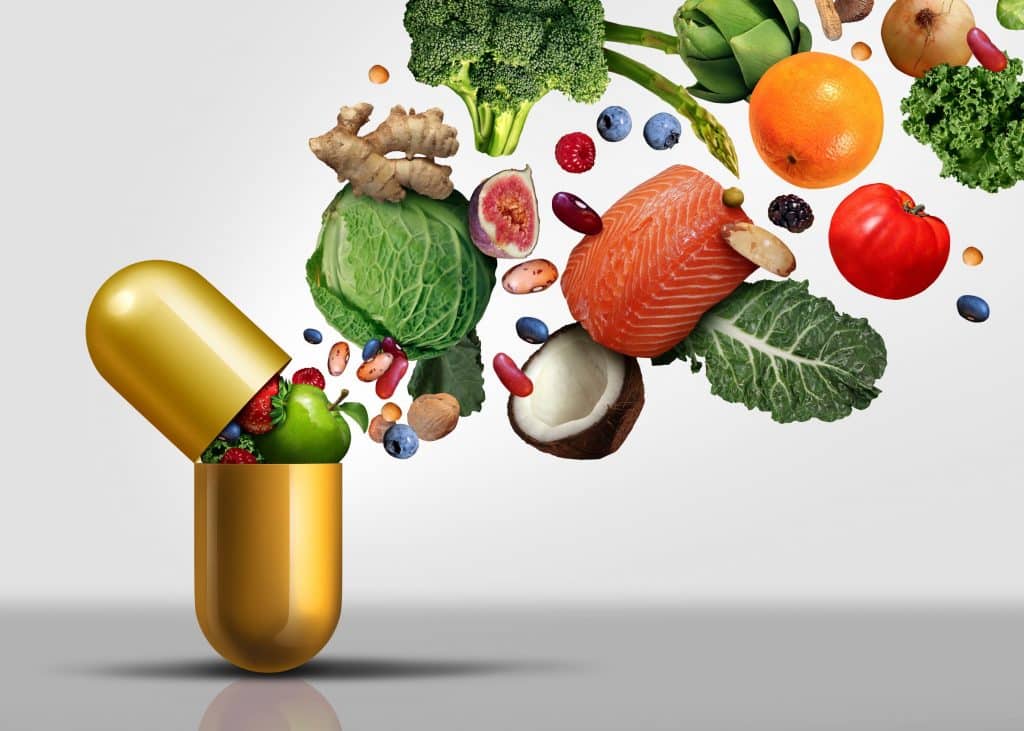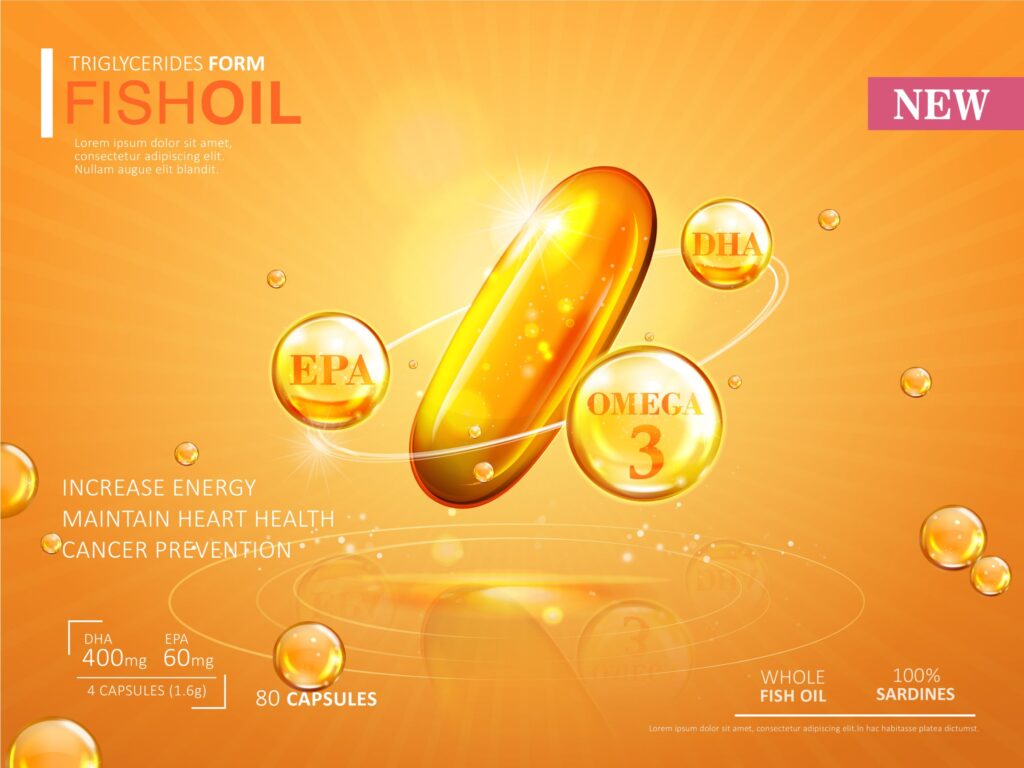What are the Legal Regulations for Advertising Supplements?

Supplements, while not medicines, are considered health foods. However, from the consumer’s perspective, they are not simply ordinary foods consumed for sustenance. Instead, they are purchased with certain expectations for health and beauty benefits. The law, unlike for ordinary foods, imposes strict advertising regulations on ‘medicines’. Similarly, strict advertising regulations are also imposed on health foods and other non-medicinal products that claim to have ‘medicinal’ effects, such as curing acne or constipation.
Supplements are recognized as entities that, while not medicines, are considered akin to them. Therefore, they must be sold and advertised while constantly considering their relationship with advertising regulations.
When selling supplements, it is understood that, unlike ordinary foods, customers will likely purchase the product with certain expectations, and that the product description must distinctly differ from that of a medicine. However, it can be challenging to determine how much to heighten expectations for the product, and what the extent and content of those expectations should be. This article will explain the advertising regulations related to supplements, which are health foods and not ordinary foods or medicines.
What is the Legal Definition of Supplements?

There is no administrative definition for “supplements”, and they are generally considered to be “products in tablet or capsule form that contain concentrated specific ingredients”. Due to the lack of a clear definition, the general public may perceive supplements as something similar to pharmaceuticals, or something that comes in tablet or capsule form, among other things.
In this regard, “pharmaceuticals”, as a legal category, are clearly defined by the provisions of Article 2, Paragraph 1 of the “Act on Securing Quality, Efficacy and Safety of Products Including Pharmaceuticals and Medical Devices (Law No. 145 of 1960)” (commonly known as the former Pharmaceutical Affairs Law) (hereinafter referred to as the “Pharmaceutical and Medical Device Act”). Therefore, anything that does not fit the definition of a pharmaceutical, regardless of its form, is classified as something completely different from a pharmaceutical. In addition, the Pharmaceutical and Medical Device Act, according to the provisions of Article 1, limits its regulatory targets to pharmaceuticals, quasi-drugs, cosmetics, and medical devices. Therefore, anything that does not fit these definitions is not subject to regulation under the Pharmaceutical and Medical Device Act.
In other words, even if supplements come in forms similar to pharmaceuticals, such as tablets or capsules, they are not legally considered “pharmaceuticals”.
Advertisements Considered as Pharmaceuticals are Impossible

Regardless of whether they are called supplements, anything that is orally ingested, that is, taken by mouth, and is considered a pharmaceutical based on its essence, shape, displayed efficacy, dosage, etc., is being manufactured (including imports, the same applies hereafter) and sold under the name of food. When it is found by administrative checks that such items exist, they are referred to as “unapproved and unlicensed pharmaceuticals”. According to the “Guidance and Control of Unapproved and Unlicensed Pharmaceuticals” (Notification No. 476 of the Pharmaceutical Affairs Bureau, Ministry of Health and Welfare, June 1, Showa 46 (1971)), the Ministry of Health, Labour and Welfare is required to instruct the governors of each prefecture to carry out guidance and control.
This notification stipulates that anything that claims to have pharmaceutical-like effects is generally considered a pharmaceutical. Therefore, if it becomes subject to advertising regulations as a pharmaceutical, there is no room for legal advertising in supplements. Therefore, the following descriptions are impossible to make in supplements that are not pharmaceuticals.
(1) Efficacy for the purpose of treating or preventing diseases
https://www.mhlw.go.jp/kinkyu/diet/dl/torishimari.pdf
(Example) For people with diabetes, hypertension, arteriosclerosis, prevention of gastric and duodenal ulcers, improvement of liver and kidney disorders, improvement of cancer, for people with eye diseases, improvement of constipation, etc.
(2) Efficacy mainly aimed at general enhancement and promotion of body tissue functions
However, expressions related to nutritional supplementation and health maintenance are not included in this.
(Example) Fatigue recovery, strengthening (increasing potency), enhancing physical strength, increasing appetite, preventing aging, enhancing learning ability, rejuvenation, rejuvenation, increasing vitality, promoting metabolism, promoting endocrine function, enhancing detoxification function, enhancing heart function, purifying blood, increasing natural healing ability against diseases, increasing digestion and absorption of the gastrointestinal tract, promoting stomach health and regulating intestines, promoting growth during and after illness, etc.
(3) Implication of pharmaceutical-like efficacy
(a) Those implied by the name or catchphrase
(Example) Longevity ○○, Essence of ○○ (Source of Immortality), Essence of ○○ (Source of Eternal Youth), Medicine ○○, Longevity, Essence of Longevity, Secret Chinese Medicine, Imperial Chinese Prescription, Japanese and Chinese Traditional Prescription, etc.
(b) Those implied by the display and explanation of the ingredients
(Example) Improving constitution, known for promoting stomach health and regulating intestines, using ○○○○ as a raw material, adding useful ingredients to it, having a synergistic effect, etc.
(c) Those implied by the explanation of the manufacturing method
(Example) It is made by preparing a plant ○○○○ that grows naturally in the deep mountains and highlands of Japan as the main ingredient, and △△△, ×××, etc. of medicinal herbs by a unique manufacturing method (patent application for manufacturing method). etc.
(d) Those implied by the explanation of origin, derivation, etc.
(Example) Looking at the old natural science book called ○○○, it opens the stomach, disperses depression, helps digestion, kills worms, and eliminates phlegm, etc. It was always prepared for meals because such experiences have been passed down from ancient times. etc.
(e) Those implied by quoting or posting articles from newspapers, magazines, etc., talks by doctors, scholars, theories, experiences, etc.
(Example) Talk by Dr. ○○○○ “It has been said that if you eat red rice with ○○○, you will not get cancer.” “It is thought that there may be a connection between the abnormal lipid metabolism of cancer cells, and subsequently abnormal carbohydrate and protein metabolism, and ○○○.” etc.
Information on Unapproved and Unauthorized Supplements and Medications

The legal status of supplements is not clearly defined under laws such as the Japanese Pharmaceuticals and Medical Devices Act. The Ministry of Health, Labour and Welfare seems to classify supplements as health foods in the form of tablets or capsules where specific ingredients are concentrated.
For more details, please visit the Japanese Ministry of Health, Labour and Welfare’s website, specifically the section on health risks and information on unauthorized and unapproved medications.
https://www.mhlw.go.jp/stf/kinkyu/diet/musyounin.html[ja]
Types of Health Foods
There is no legal definition for health foods. They are broadly referred to as foods that are sold and used for the purpose of maintaining and promoting health. Health foods include the following categories: ②③④⑤.
①Medicines
②Foods for Specified Health Uses (FOSHU) (individual approval system)
③Nutrition function foods (self-affirmation system)
④Foods with Function Claims (FFC) (notification system)
⑤So-called “health foods”
Among these, the national system includes the “Insurance Function Food System” (②③④), which meets the safety and effectiveness standards set by the government. In other words, supplements are generally treated as “health foods”, and “Foods for Specified Health Uses” that have received approval, “Nutrition function foods” that have obtained self-affirmation, and “Foods with Function Claims” that have been notified, are treated as exceptions to this.
Advertising Regulations for Supplements (Health Foods)

So, what kind of advertising regulations are applied to supplements, which are classified as health foods?
Regarding health foods, in the notification titled “Review of the System for Health Foods” (Notification No. 0201001 of the Director of the Pharmaceutical and Food Bureau of the Ministry of Health, Labour and Welfare dated February 1, Heisei 17 (2005)), it is stated in “Section 4: Prohibition of False and Exaggerated Advertising Related to Health Maintenance and Promotion Effects” that false and exaggerated advertising is prohibited under Article 32-2 of the Health Promotion Act, and that the Ministry of Health, Labour and Welfare is requesting cooperation from prefectural governors, mayors of cities with health centers, and special ward mayors to strengthen surveillance and rectify violations.
This notification was issued in response to the increasing use of “health foods” and reports of health damage, necessitating the enhancement and proper implementation of the labeling system, and a review of the system as a whole.
In order to promote a correct understanding of the contents of this system review, the Ministry of Health, Labour and Welfare has created a Q&A on the system related to “health foods” (Notification No. 0228001 of the Director of the Food Safety and Standards Division of the Pharmaceutical and Food Bureau of the Ministry of Health, Labour and Welfare dated February 28, Heisei 17 (2005)), and is working to provide guidance to businesses and disseminate information to related parties. The system of exaggerated advertising is as follows in this notification.
【Q56 What is the system for prohibiting false and exaggerated advertising for “health foods”?
The effects on health and the functions of the food that are displayed as “health foods” must be based on scientific evidence. Therefore, under Article 32-2 of the Health Promotion Act, when making claims about health maintenance and promotion effects for items sold as food, the content must not be significantly different from the facts or misleading.
(※ Even if the content does not violate this provision, it is separately prohibited by the Pharmaceutical Affairs Law for “so-called health foods” that have not been approved as pharmaceuticals to display pharmaceutical efficacy and effects.)】
This section states that the Ministry of Health, Labour and Welfare requires that items labeled as “health foods” have effects on health and food functions that are based on scientific evidence, unlike ordinary foods, and that under Article 32-2 of the Health Promotion Act, the display of items sold as food must not be significantly different from the facts or misleading in terms of health maintenance and promotion effects.
(Purpose)
Health Promotion Act Article 1 (Law No. 103 of Heisei 14 (2002)) (hereinafter referred to as the “Health Promotion Act”)
Article 1 This law aims to improve national health by establishing basic matters for the comprehensive promotion of national health promotion, taking into account the rapid aging of our country and changes in disease structure, and the increasing importance of national health promotion, and by taking measures to improve national nutrition and other measures to promote national health.
The Health Promotion Act is a law aimed at improving national health. The background to the creation of this law is the current situation where the importance of national health promotion is increasing due to the rapid aging of Japan and changes in disease structure. Therefore, it stipulates basic matters for promoting national health promotion and measures to improve national nutrition and other measures to promote national health.
This law prohibits those who sell as food from making “false and exaggerated advertising” that significantly differs from the facts or misleads people when making advertisements or other displays about health maintenance and promotion effects and other matters specified by the Minister of Health, Labour and Welfare.
(Prohibition of Exaggerated Display)
Health Promotion Act Article 32-2
Article 32-2
No one shall make a display in advertising or other forms about health maintenance and promotion effects and other matters specified by the Minister of Health, Labour and Welfare (hereinafter referred to as “health maintenance and promotion effects, etc.”) for items supplied for sale as food, that significantly differs from the facts or misleads people.
The reason for the prohibition of false and exaggerated advertising is the increasing use of foods recognized as health foods due to the growing health consciousness in recent years, the recommendation of long-term and continuous intake, and the risk of serious obstacles to the maintenance and promotion of national health, such as citizens missing appropriate medical opportunities because they believe in it.
The exaggerated display that is clearly prohibited in this article refers to advertisements and other displays for items sold as food that are significantly different from the facts or misleading about health maintenance and promotion effects.
The judgment of whether it is ① significantly different from the facts or ② misleading is based on the impression and recognition that consumers receive from the entire display content.
First, the judgment of what constitutes “significantly” is made according to each advertisement. For example, if a general consumer knows the difference between the content written in the advertisement and the actual effect obtained when consuming that food, and can judge that “they will not be enticed to purchase that food,” it is considered “significant.”
On the other hand, “different from the facts” refers to cases where the effect actually obtained and the display emphasized in advertisements and other materials are different. For example, this includes cases where a display such as “It has been proven that you can lose X kilograms in 3 months” is made despite the absence of sufficient experimental results or other evidence.
On the other hand, “misleading people” refers to cases where there is a difference between the impression and expectation of health maintenance and promotion effects recognized from advertisements and other materials and the actual effect obtained. For example, this includes cases where only favorable descriptions are quoted from academic data that serve as the basis, ignoring inconvenient descriptions for that food.
Specifically, for foods that claim a slimming effect, displays such as “It wraps up excess nutrients and carbohydrates and excretes them with feces” that suggest that the absorption of carbohydrates and other substances ingested through meals can be inhibited and excreted from the body will be required to be deleted (Notification No. 1208001 of the Food Safety and Standards Division of the Pharmaceutical and Food Bureau of the Ministry of Health, Labour and Welfare dated December 8, Heisei 16 (2004)).
(Recommendations, etc.)
Health Promotion Act Article 32-3
Article 32-3
The Minister of Health, Labour and Welfare may recommend necessary measures to a person who has made a display in violation of the provisions of the preceding article, when it is deemed that there is a risk of a significant impact on the maintenance and promotion of national health.
2 The Minister of Health, Labour and Welfare may order a person who has received a recommendation under the preceding paragraph and has not taken the measures related to the recommendation without justifiable reason to take the measures related to the recommendation.
3 Omitted
If such exaggerated display is made, first, the Minister of Health, Labour and Welfare may recommend necessary measures for the display if there is a risk of a significant impact on the maintenance and promotion of national health (Health Promotion Act Article 32-3, Paragraph 1).
Next, the Minister of Health, Labour and Welfare may order a person who has received this recommendation and has not taken the measures related to the recommendation without justifiable reason to take the necessary measures related to the recommendation (Health Promotion Act Article 32-3, Paragraph 2).
Article 36-2
A person who violates an order based on the provisions of Article 32-3, Paragraph 2 shall be punished by imprisonment for up to six months or a fine of up to one million yen.
Health Promotion Act Article 36-2
And if you do not comply with the order, you will be punished by imprisonment for up to six months or a fine of up to one million yen.
In addition to the Health Promotion Act, laws regulating the display of “health foods” include the Food Sanitation Act, the JAS Act (Act on Standardization and Proper Quality Labeling of Agricultural and Forestry Products), the Pharmaceutical Affairs Act, the Unfair Competition Prevention Act, and the Specified Commercial Transactions Act.
Summary: Not All Advertisements of Supplements are Permitted even if they are Non-pharmaceuticals
As discussed above, while the legal handling of “health foods” such as supplements is not always clear, exaggerated claims are prohibited by notifications from the Japanese Ministry of Health, Labour and Welfare. This means that not all advertisements are permitted just because they are not pharmaceuticals.
Category: General Corporate





















